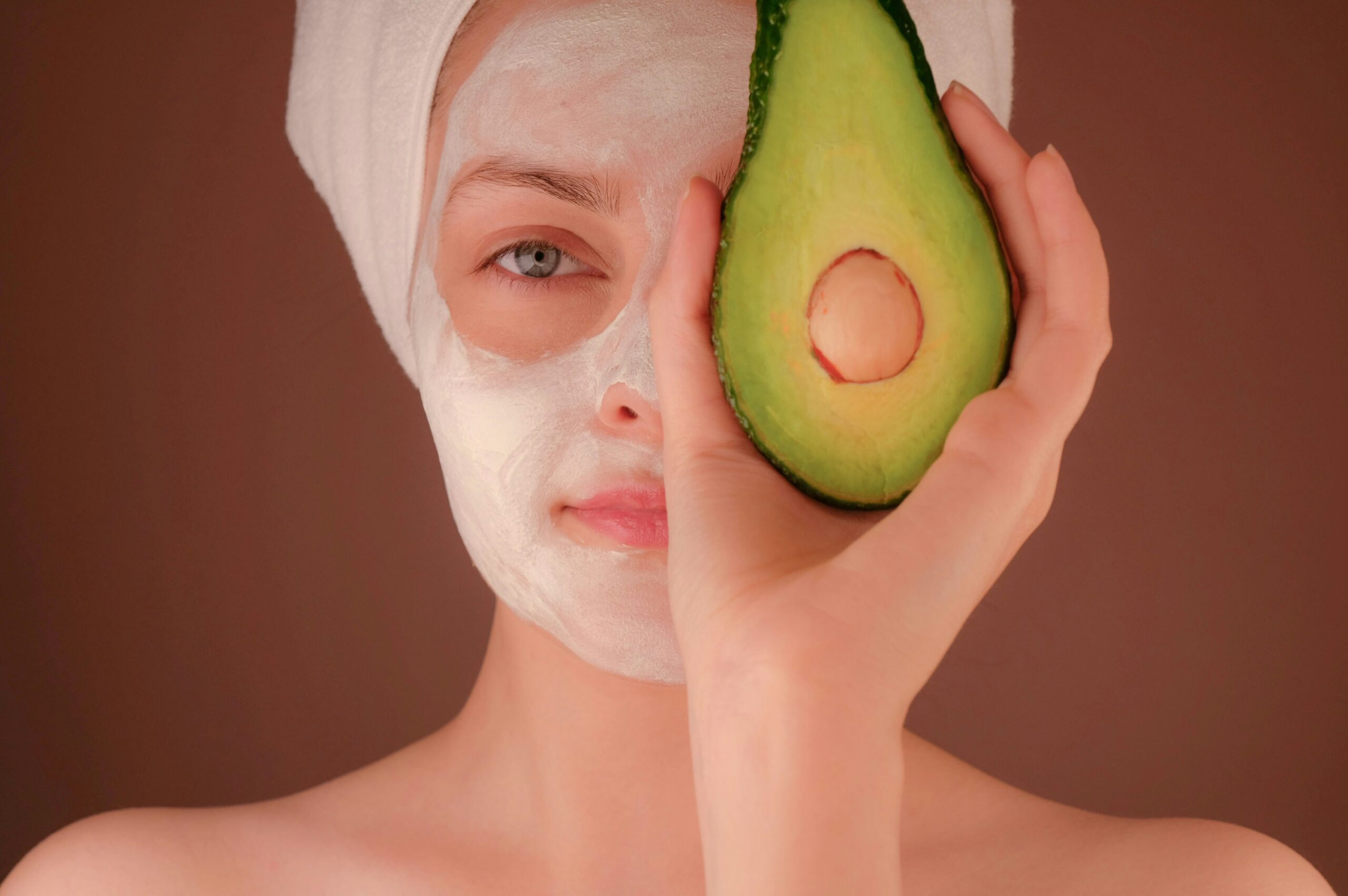The Importance of Skin Care
Our skin is an extraordinary organ, standing as the body’s largest and most visible feature. It functions as the first line of defense against environmental factors, bacteria, and pollutants. This crucial role underpins why we need to take care of our skin deliberately and consistently. By protecting internal structures, regulating temperature, and enabling the sense of touch, our skin plays a vital role in maintaining overall health.
In addition to these essential physical functions, good skin care practices reach further, impacting our emotional well-being. For many individuals, the condition of their skin directly influences their self-confidence and self-esteem. Clear, healthy skin can enhance one’s appearance, leading to a positive self-image and greater confidence in social interactions.
Neglecting skin care can result in a host of issues, such as dryness, premature aging, and an increased susceptibility to infections and diseases. Considering the myriad of external aggressors our skin faces daily, from UV radiation to environmental pollutants, proactive measures are imperative. Regular cleansing, moisturizing, and the use of sun protection are fundamental practices that contribute significantly to the skin’s longevity and resilience.
Moreover, investing time in understanding and implementing effective skincare routines can have far-reaching implications for our well-being. Beyond the visible improvements in skin texture and appearance, consistent care fosters a sense of responsibility for one’s body, encouraging healthier lifestyle choices overall. Therefore, the importance of skin care extends beyond mere aesthetics; it is a comprehensive approach to nurturing one’s health and enhancing quality of life.
Understanding the Skin’s Structure and Functions
The human skin, our body’s largest organ, is composed of three primary layers: the epidermis, dermis, and hypodermis. Each of these has unique characteristics and functions that are integral to our overall health.
The epidermis, the outermost layer, serves as a vital barrier protecting against environmental dangers, pathogens, and UV radiation. Its topmost sub-layer, the stratum corneum, is composed of dead skin cells that are regularly shed and replaced. This continuous renewal is crucial for maintaining the skin’s integrity and effectiveness as a protective shield. Within the epidermis, melanocytes produce melanin, responsible for pigment, and keratinocytes generate keratin, which provides strength and waterproofing.
Below the epidermis lies the dermis, a thicker layer housing a robust network of collagen and elastin fibers. These fibers confer strength and elasticity to the skin, enabling it to withstand stress and return to its original shape. The dermis also contains blood vessels that aid in thermoregulation, sweat glands that facilitate cooling, sebaceous glands that produce sebum for lubrication, and nerve endings that enable sensation. Together, these features make the dermis instrumental in regulating body temperature and providing sensory feedback.
The innermost layer, the hypodermis, is primarily comprised of adipose tissue, functioning as an insulation and shock absorber. It helps cushion internal organs and conserves body heat, lending structural support and connectivity to the rest of the skin layers.
An often overlooked aspect of skin function is its role in the immune system. The skin acts as the first line of defense against pathogens and has immune cells capable of recognizing and neutralizing potential threats. Additionally, the skin’s ability to self-heal through cellular regeneration underscores the necessity of taking proper care of our skin to ensure these processes work optimally. By understanding the anatomy and functions of our skin, it becomes clear why we need to take care of our skin for both protection and overall health.
Common Skin Issues and How to Prevent Them
Taking care of our skin is essential to prevent a range of common skin problems that can affect our overall well-being. Among the most frequently encountered issues are acne, eczema, psoriasis, and dermatitis. Each of these conditions has distinct characteristics and underlying causes, but many can be mitigated through thoughtful skincare practices.
Acne, a prevalent problem especially during adolescence, occurs when hair follicles become clogged with oil and dead skin cells. Hormonal changes, diet, and stress can exacerbate this condition. Consistent and gentle cleansing routines, coupled with non-comedogenic moisturizers, can reduce breakouts and irritation.
Eczema, or atopic dermatitis, presents as red, itchy, and inflamed skin. It often arises from a combination of genetic and environmental factors, including allergens, stress, and weather changes. To prevent flare-ups, it is important to maintain a regular moisturizing regimen to keep the skin barrier intact and reduce exposure to known irritants.
Psoriasis is a chronic autoimmune condition characterized by rapid skin cell turnover leading to scales and red patches. While its exact cause is not fully understood, genetics and immune system function play critical roles. Preventive care involves moisturizing to alleviate scaling and using topicals prescribed by dermatologists.
Dermatitis, an overarching term for skin irritation, includes conditions like contact dermatitis which is triggered by exposure to allergens or irritants. Identifying and avoiding these triggers, along with consistent use of soothing and protective skincare products, can help prevent outbreaks.
Environmental factors such as pollution, UV radiation, and harsh weather conditions significantly impact skin health. Employing sun protection measures, like using broad-spectrum sunscreen and wearing protective clothing, is crucial to prevent sun damage and, consequently, reduce the risk of skin issues.
Adopting a holistic skincare routine addressing these common issues is key to maintaining healthy skin. Understanding why we need to take care of our skin, including the underlying causes of significant conditions, allows for informed decisions and better prevention strategies. Consistent cleansing, moisturizing, and protection from environmental harm stand as pillars in fostering radiant and resilient skin.

The Role of Diet and Hydration in Skin Health
Understanding why we need to take care of our skin involves recognizing the significant role diet and hydration play in maintaining healthy skin. Our dietary choices directly affect the skin’s appearance and overall health. Incorporating specific vitamins and nutrients can dramatically improve skin health.
Vitamins such as Vitamin C and E are crucial. Vitamin C, found in citrus fruits, strawberries, and bell peppers, is essential for collagen synthesis, which maintains skin elasticity and firmness. It also acts as an antioxidant, protecting the skin from damage caused by free radicals. On the other hand, Vitamin E, abundant in nuts, seeds, and green leafy vegetables, helps shield the skin from oxidative stress and can support the natural healing process of the skin.
Omega-3 fatty acids, present in fish like salmon and mackerel, as well as flaxseeds and walnuts, are another key nutrient. These fatty acids help to maintain the skin’s lipid barrier, keeping it supple and hydrated, and reducing inflammation that can lead to irritation and acne. Including these fats in your diet can contribute to more radiant and resilient skin.
Hydration is another pivotal aspect of skin care. Drinking an adequate amount of water daily—typically around 8 glasses—can make a noticeable difference. Proper hydration helps maintain skin moisture levels, ensuring that the skin remains soft, elastic, and glowing. When the body is well-hydrated, it efficiently flushes out toxins, reducing the risk of skin problems such as dryness, flakiness, or breakouts.
Practical dietary tips include increasing the intake of fruits and vegetables rich in vitamins and antioxidants, as well as incorporating nuts, seeds, and oily fish to ensure a good supply of Omega-3 fatty acids. For hydration, carrying a water bottle can serve as a constant reminder to drink more water, and consuming water-rich foods like cucumbers and watermelon can contribute to overall hydration levels. Through mindful eating and adequate hydration, achieving optimal skin health from within becomes a tangible goal.
The Impact of Stress and Sleep on the Skin
The health of our skin is intricately linked to our overall mental wellness, making the management of stress and ensuring adequate sleep pivotal aspects of skincare. When we experience chronic stress, our bodies secrete higher levels of cortisol, a stress hormone that can wreak havoc on our skin. Elevated cortisol levels lead to increased oil production, which often results in acne and breakouts. Additionally, stress can exacerbate conditions such as psoriasis, eczema, and rosacea, making them more difficult to manage.
Furthermore, prolonged stress has been shown to accelerate the aging process. The increase in cortisol breaks down collagen and elastin, the proteins that keep our skin firm and elastic. This degradation leads to the formation of fine lines, wrinkles, and sagging skin, contributing to a prematurely aged appearance. Stress also weakens our skin’s barrier function, leaving it more vulnerable to environmental aggressors like pollution and UV radiation, which in turn further damages the skin.
Similarly, lack of sleep significantly impacts skin health. Sleep is a crucial time for skin to repair itself from daily damage. During sleep, blood flow to the skin increases, collagen is rebuilt, and damage caused by UV exposure is repaired. Insufficient sleep disrupts these restorative processes, resulting in dull skin, dark circles under the eyes, and a compromised complexion. Over time, chronic sleep deprivation can lead to more pronounced signs of aging.
Managing stress and fostering good sleep hygiene are essential strategies for maintaining healthy skin. Techniques such as mindfulness meditation, yoga, and deep-breathing exercises can effectively reduce stress levels. A consistent sleep schedule, free from the disruptions of electronic devices, helps ensure restorative rest. Creating a calming bedtime routine, such as reading or taking a warm bath, can also promote better sleep quality.
By understanding the profound impacts of stress and sleep on our skin, we underscore the importance of mental well-being in our daily skincare regimen. Approaching skin health holistically, considering both physical and psychological factors, provides a path to achieving radiant and resilient skin.
The Importance of a Customized Skin Care Routine
A personalized skin care regimen is essential for maintaining healthy skin, as it caters to the unique needs of different skin types, such as oily, dry, combination, or sensitive skin. Understanding why we need to take care of our skin begins with recognizing that a one-size-fits-all approach is often ineffective. Different skin types and conditions require specialized care to optimize skin health and prevent issues like acne, premature aging, and irritation.
The foundation of any effective skincare routine includes several key steps: cleansing, exfoliating, moisturizing, and applying sunscreen. Cleansing removes dirt, oil, and impurities from the surface of the skin, preparing it for subsequent steps. Exfoliating helps slough off dead skin cells, promoting cell turnover and a radiant complexion. Moisturizing keeps the skin hydrated and maintains its barrier function, while sunscreen protects against harmful UV rays that can cause sunburn and increase the risk of skin cancer.
Choosing the appropriate products for each step is crucial. For instance, those with oily skin may benefit from a gentle, oil-free cleanser and a lightweight, non-comedogenic moisturizer. Conversely, individuals with dry skin might need a more hydrating cleanser and a richer moisturizer. Ingredients like salicylic acid and glycolic acid can be beneficial for exfoliating oily and acne-prone skin, while hyaluronic acid and ceramides are excellent for retaining moisture in dry or sensitive skin.
Consulting a dermatologist can provide invaluable personalized advice. A dermatologist can assess your skin type and condition, recommend effective products, and guide you through any necessary adjustments to your routine. This professional insight ensures that your skin care regimen is not only effective but also safe, minimizing the risk of adverse reactions and maximizing the benefits. By tailoring your skincare routine to your individual needs, you optimize your skin’s health and appearance, making it more resilient and radiant.

The Role of Professional Skin Care Treatments
A healthy, radiant complexion often requires more than just at-home skincare routines. Professional skin care treatments, such as facials, chemical peels, microdermabrasion, and laser therapy, can play a pivotal role in maintaining and enhancing skin health. These advanced options offer targeted solutions for various skin concerns and contribute significantly to overall skin wellness.
Facials are among the most common professional treatments sought after for deep cleansing, exfoliation, and hydration. They can address specific issues like acne, dryness, or aging, providing a customized approach to skincare. Regular facials can help maintain a balanced complexion by removing impurities and revitalizing the skin.
Chemical peels involve the application of a chemical solution to exfoliate the skin’s outer layers. This treatment effectively diminishes fine lines, acne scars, and hyperpigmentation. However, it’s vital to choose the appropriate type and strength of the peel based on individual skin type and concerns to minimize the risk of adverse reactions.
Microdermabrasion employs a minimally abrasive instrument to gently exfoliate the skin, removing dead skin cells and promoting cell turnover. This non-invasive treatment can improve skin texture, tone, and clarity, making it a popular choice for those looking to rejuvenate their complexion without significant downtime.
Laser therapy uses concentrated light to target specific skin issues, such as wrinkles, sun damage, and uneven pigmentation. The benefits of laser treatments include precision, effectiveness, and the ability to stimulate collagen production. However, potential risks involve temporary redness, swelling, and, in rare cases, burns or scarring.
The effectiveness and safety of these advanced treatments underline the importance of consulting with licensed professionals. They possess the expertise to assess skin conditions accurately and recommend suitable treatments. This ensures that the procedures are performed correctly, reducing the risk of complications and enhancing the overall outcome.
In sum, professional skin care treatments offer advanced solutions to achieve and maintain optimal skin health. By understanding the benefits and associated risks, individuals can make informed decisions and seek the expertise of qualified professionals to cater to their unique skincare needs effectively.
The Long-Term Benefits of Consistent Skin Care
Maintaining a consistent skincare routine can yield significant long-term benefits. Primarily, a well-structured skin care regimen can delay the signs of aging. Regular steps, including cleansing, moisturizing, and the use of sun protection, work cohesively to maintain skin elasticity, reduce the appearance of fine lines, and provide a youthful glow. Through diligent care, many of the visible effects of aging can be minimized, allowing for a more vibrant complexion over time.
Besides aesthetic improvements, consistent skin care is pivotal in reducing the risk of various skin diseases. Effective routines can prevent issues such as acne, eczema, and even certain skin cancers. By regularly removing impurities and protecting the skin from ultraviolet (UV) radiation, one can avert many common dermatological conditions. This preventive approach underscores why taking care of our skin is a crucial aspect of long-term health.
Moreover, maintaining a regular skin care regimen contributes to an improved overall appearance. Clear, well-nourished skin can enhance self-esteem and confidence, positively impacting both personal and professional interactions. The act of daily care fosters a sense of routine and self-discipline, reinforcing the importance of self-care in broader aspects of life. Consequently, committing to skin care is not just about physical health but also emotional and psychological well-being.
Investing time and effort into a consistent skincare routine indeed pays off in various ways. These long-term benefits highlight why we need to take care of our skin proactively. By cultivating good skin care habits, we not only fend off the effects of aging and disease but also nourish our emotional health, ensuring a harmonious balance between our inner and outer selves.



